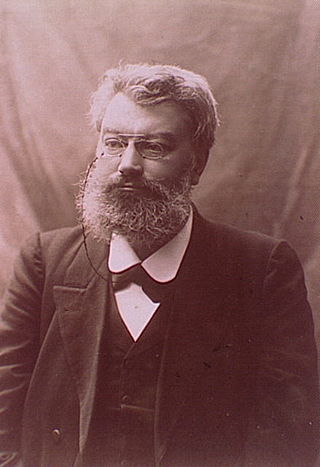
Charles Camille Pelletan was a French politician, historian and journalist, Minister of Marine in Emile Combes' Bloc des gauches cabinet from 1902 to 1905. He was part of the left-wing of the Republican, Radical and Radical-Socialist Party, created in 1902.
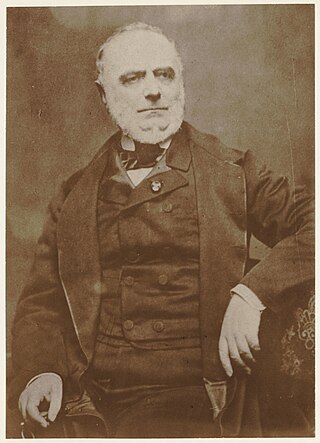
Claude-Marius Vaïsse was a French lawyer who joined the administration of the July Monarchy. During the French Second Republic he was briefly Minister of the Interior. Under the Second French Empire he was appointed prefect of the Rhône department. He was called the "Hausmann of Lyon" for his work on urban design in Lyon.

Charlemagne Émile de Maupas was a French lawyer and politician who was head of the Parisian Police during the critical period when Napoleon III seized power in the coup of 2 December 1851.

Démosthène Ollivier was a French businessman and politician. He was a staunch democrat and Republican, and was opposed to the Bourbon Restoration and the monarchy of Louis Philippe I. In the 1830s he was a friend of the Italian nationalist politician Giuseppe Mazzini. He was elected to the Constituent Assembly after the revolution of 1848. He protested the 1851 coup by Prince Louis Napoleon, and was forced into exile. His son Émile Ollivier became a prominent politician, and Démosthène Ollivier was allowed to return to France in 1860.
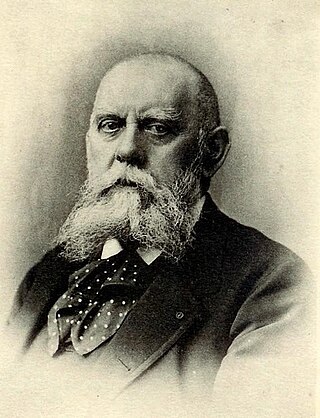
Geoffroy Velten, or Godfried Velten was a French brewer, newspaper proprietor and politician who became a member of the Senate of France.

Paul Dussaussoy was a French lawyer and politician. Born in Dunkirk, Nord, he was a deputy to the national assembly from 1893 to 1902 and again from 1906 until his premature death in 1909. He introduced the first French bill that proposed to give votes to women, at first limited to local elections.
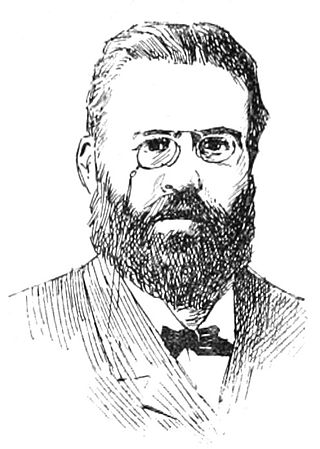
Antide Boyer was a French manual worker, Provençal dialect writer and journalist from the south of France who became a socialist deputy. He supported strikes and was involved in the fight for worker's rights around the turn of the 19th century. He participated as a volunteer in the Greco-Turkish War of 1897.

Alphonse Alfred Haentjens was a French industrialist and politician.
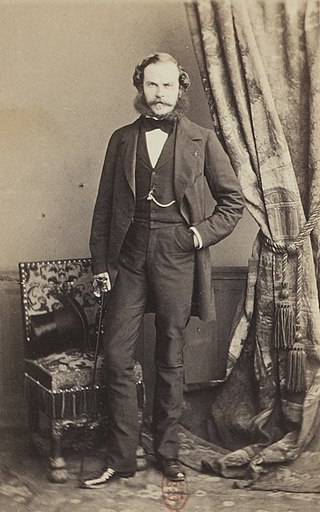
Joachim Joseph André Murat was a French politician who served as deputy for Lot from 1854 to 1889 during the Second French Empire and the French Third Republic.

Jean-Charles Abbatucci was a Corsican lawyer and politician who was a Deputy for Corsica during both the French Second Republic and the French Third Republic. He was a committed Bonapartist throughout his political career.

Adrien Joseph Prax-Paris was a French politician who was a Bonapartist deputy for Tarn-et-Garonne during the Second French Empire and the French Third Republic.

Baron Alfred de Vast-Vimeux was a French soldier and Bonapartist politician who represented the department of Charente-Inférieure as a deputy during the Second French Empire and in the legislature and the senate of the French Third Republic.

Arthur Legrand was a French lawyer, public servant and politician who represented Manche in the legislature almost continuously from 1871 to his death in 1916. His political beliefs were Bonapartist and conservative at first, and later he ran as an independent..

Eugène Jolibois was a French lawyer and politician. He was Bonapartist deputy for Charente-Inférieure from 1876 to 1893.

Louis Le Provost de Launay was a French politician who was Deputy and then Senator for the department of Côtes-du-Nord . He was a right-wing Bonapartist.
Michel Etienne Anthelme Théodore Grandperret was a French lawyer and politician. He was a staunch Bonapartist. He served briefly as Minister of Justice and Religious Affairs during the last weeks on the Second French Empire. Later he was a Life Senator from 1877 to his death.

Émile Joseph Marie Piétri, known as Joachim Pietri, was a French lawyer and public servant who was prefect of several departments, a repressive police chief of Paris in the last years of the Second French Empire and Bonapartist Senator of Corsica from 1879 to 1885.

Joseph Gustave Desmazes was a French naval commissioner who was Senator of Martinique from 1876 to 1882.

Césaire Léon Amaudric du Chaffaut was a French politician who was a member of the National Assembly and then a Senator from 1876 until his death.

Louis Tirman was a French lawyer and civil servant who was prefect of several departments, Governor General of French Algeria from 1881 to 1891 and then Senator of Ardennes from 1892 until his death in 1899. He believed in consolidating the French presence in Algeria through support of the colons, and the grant of French nationality to the Algerian-born children of Spanish and Italian settlers.
This page is based on this
Wikipedia article Text is available under the
CC BY-SA 4.0 license; additional terms may apply.
Images, videos and audio are available under their respective licenses.



















